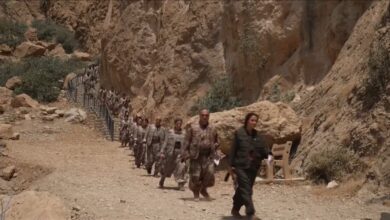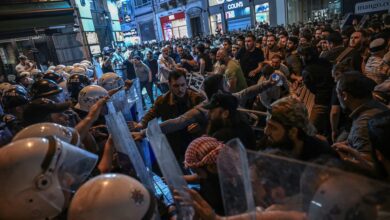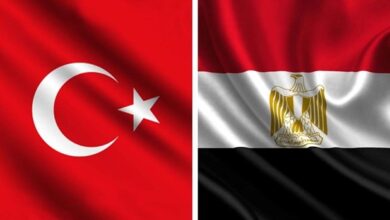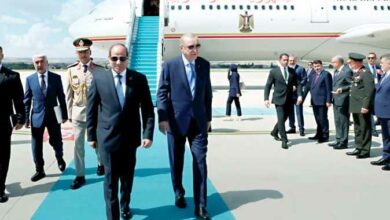There was a time when Turkish products in Egypt were limited to the Paşabahçe glass products sold door-to-door – and the chewing-gum you bought duty-free in Port-Said.
No longer. Today, the tour bus you’re riding in Cairo, the shirt you’re wearing or the luxury store you’re shopping at – may be a product of Turkish manufacturing and investment.
In 1996, three Turkish firms had decided to invest a total of $4.6 million in Egypt. As of today, more than 200 Turkish companies, representing nearly
$1.5 billion and employing upwards of 50,000 persons, have set shop in Egypt. From luxury mall Beymen to tour buses, Turkey’s investment in Egypt is omnipresent. Most of the production, however, does not reach the Egyptian market.
According to Egypt’s General Authority for Investment (GAFI), while industrial investments represent the bulk of all Turkish capital in the country – 81 per cent of all investment in terms of value – nearly half the companies based in Egypt operate in the fields of tourism, services, construction, telecoms and agriculture.
Egypt and Turkey are the largest markets in the region. A rapprochement was only natural, and seemed overdue. It stayed so until only a few years ago. In December 2005, Egypt and Turkey signed a free trade agreement, replacing a number of ineffective economic agreements signed in the past.
“It started in 2005”, tells us Gökmen Şahin, Commercial counselor at the Turkish embassy in Egypt. “Relations boomed after that date”. And booming they have: despite the global recession, the trade volume in 2009 is expected to reach US$3 billion, an increase of 25% from last year.
But a political agreement can never explain the exponential growth of investment streams. Then what are the elements of attraction for foreign investors, Turkish ones in particular?
Mr. Şahin offers an explanation: “Cheap labor and energy, geographical proximity – and cultural similarities” are among the main attraction points for Turkish investors: they feel at home in Cairo.
Another major point has been omitted: Egypt’s participation in a number of customs and preferential trade agreements, most notably with the US and with regional trade blocs.
“We have a target of 30% production for the local market, 70 per cent for export.
Egypt is a unique production base, which we use to target the North African, Middle Eastern and South Saharan African market”, explains Mr. Ayhan Dayoğlu, General Manager of bus manufacturer TEMSA-Egypt. He seeks to take advantage of Egypt’s customs agreements – East and South Africa’s COMESA seemingly the most notable in his eyes – to provide the company a good opportunity to export to the region.
Mr. Şahin concurs: “Turkish investment is primarily eying the export market”.
Turkish investors have also successfully eyed the Qualifying Industrial Zones (QIZ), taking advantage of an American-sponsored agreement giving goods manufactured in those zones duty-free access to the US market, provided they abide by certain rules of origin, which include an 11.71 per cent Israeli content requirement. Major Turkish textile companies, such as Gulteks, Sahinler Holding, or Hilteks have since taken advantage of the terms of the agreement and have Egyptian subsidiaries in the 10th of Ramadan, Alexandria, or Nasr City.
Last month the “International Business Forum” took place, organized by the Cairo Chamber of Commerce and the Turkish Industrialists’ and Businessmen Association (MUSIAD). Attended by businesspersons and politicians from both sides, it confirmed the strong political support that this economic rapprochement enjoyed. For instance, Egyptian Minister of Trade and Industry Rachid Mohamed Rachid celebrated that “Not only has bilateral trade increased, but the FTA has facilitated an increase in industrial investment between Egypt and Turkey”. And on his side, Turkish Foreign Trade Minister Zafer Çağlayan declared that “Egypt offers lucrative investment opportunities for the Turkish construction industry… Egypt’s investment minister has invited Turkish construction firms to present bids for the tenders of these projects too”.
It could not be all rosy, and the problems Turkish investors face in Egypt are the same facing foreign direct investment in general.
Customs, unsurprisingly have made it on the list of complaints. Infrastructure also stands to be improved, as does employment. Interestingly, a location such as the Borg el-Arab industrial zone suffers from shortages of labor force, so much that Counselor Şahin “finds it difficult to advise investors to go to Borg el-Arab”.
But the biggest drawback pertains to the labor productivity. While labor in Egypt is significantly cheaper than in many other countries, including Turkey, local workers’ productivity clearly ‘stands to be improved’, in the upbeat terms of Mr. Dayoğlu.
As for future prospects, Turkish officials and businesspersons on both sides seem unabashedly optimistic. “Since this week, we even have a new commercial attaché in Alexandria”, said Mr. Shahin.
And plans for the Egyptian-Turkish industrial zone all well underway.
Planned on 3 million square meters – a million square meters more than the original plans in 2006 – the project which hopes to employ upwards of 35,000 persons has garnered wide international interest. Most of the land has already been contracted to undisclosed companies.




